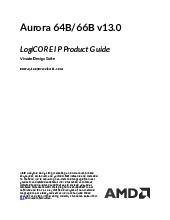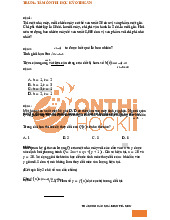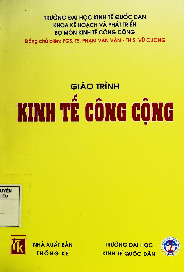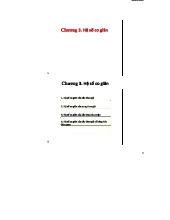














Preview text:
lOMoAR cPSD| 44919514
NATIONAL ECONOMICS UNIVERSITY FACULTY OF INVESTMENT ------------------------- ESSAY
SUBJECT: FOREIGN INVESTMENT Title:
Contents of two principles ‘National treatment–NT’ and ‘Most-favored nation
treatment-MFN’ in international cooperation activities. Distinghuish these 2 types.
Team members: Nguyễn Việt Hùng – 11212438
Phan Đình Nhật – 11214512 Pham Thu Mai – 11213706
Bành Lê Hoàng – 11212329
Supervisor: Associate Professor PhD. Tu Quang Phuong HANOI, 10/2023 TABLE OF CONTENTS lOMoAR cPSD| 44919514
INTRODUCTION...............................................................................................................................
I. Rationale ................................................................................................................................................. 2
II. Research subjects .................................................................................................................................. 3
III. Research objectives ............................................................................................................................. 3
IV. Research methods ................................................................................................................................ 3 RESEARCH
CONTENT....................................................................................................................CHAPTE R 1: OVERVIEW OF NATIONAL TREATMENT AND MOST-FAVORED
NATIONTREATMENT ............................................................................................................................ 4
1. Some concepts .................................................................................................................................................... 4
1.1. Definition of National treatment ............................................................................................................... 4
1.2. Definition of Most-favored nation treatment ........................................................................................... 4
2. Main content ...................................................................................................................................................... 4
2.1. Main content of National treatment ......................................................................................................... 4
2.2 Main content of Most-favored Nation ..................................................................................................... 10
CHAPTER 2: DISTINGUISH BETWEEN NATIONAL TREATMENT AND MOST-
FAVOREDNATION TREATMENT ...................................................................................................... 12
2.1. The same characteristics .............................................................................................................................. 12
2.2. The different characteristics ........................................................................................................................ 13
CONCLUSION.................................................................................................................................. INTRODUCTION I. Rationale
In the trend of globalization, countries around the world are strongly
integrating into the regional economy as well as the world economy on the basis of
multilateralization and modernization of international economic relations. In order to
be able to launch trading and successful negotiations, an indispensable factor is the
financial legal framework, in line with international financial regulations.
Considering the scope of international trade, participating countries need to build and
seriously apply principles that create a healthy competitive environment. In that
system of principles, Nationality (MFN) and Nationality (NT) are the two most important principles.
Most Favored Nation (MFN) and National Treatment (NT) have the same nature of
being fair and competitive, creating a fair competitive international trade
environment. These two principles are clearly expressed through the agreements of
the International Trade Organization (WTO), and are also important principles
applied in bilateral and local economic cooperation. 2 lOMoAR cPSD| 44919514
In conclusion, this essay will offer insightful observations and recommendations in
order to better understand the two principles of Most Favored Nation (MFN) and
Treatment National (NT) and especially distinghuish between two principles.
Based on that, our team decided to conduct a research project on " Contents of two
principles ‘National treatment–NT’ and ‘Most-favored nation treatment-MFN’ in
international cooperation activities. Distinghuish these 2 types.
II. Research subjects
The essay will focus on conducting an overview of Most Favored Nation
(MFN) as well as the National Treatment (NT) all over the world nowadays .
Subsequently, the paper will delve into the analysis of two principles within in
Vietnam and then propose related measures.
III. Research objectives
Firstly, an overall understanding of Most Favored Nation (MFN) and National
Treatment (NT) will be explored.
Secondly, distinghuish between Most Favored Nation (MFN) and National
Treatment (NT) will be conducted.
Thirdly, an overview and conclusion between Most Favored Nation (MFN)
and National Treatment (NT) in VietNam
IV. Research methods -
Literature review and synthesis method 1: This is the most widely employed
method in the execution of this research. The author has consulted numerous sources
of literature, such as relevant books, articles, and internet resources. From these
reference materials, the author has cited and synthesized them into a comprehensive paper. -
Problem-solving methodology: This is an extremely important method in
philosophical research and in various scientific fields. For this topic, the author
begins by researching Most Favored Nation (MFN) and National Treatment (NT).
Subsequently, , distinghuish between Most Favored Nation (MFN) and National
Treatment (NT) . In other words, it involves progressing from the most common and
widespread aspects to the specifics and details of the research topic. -
Deductive reasoning method: , A better understand between Most Favored
Nation (MFN) and National Treatment (NT), the author applies and synthesizes the
fundamental principles of dialectical materialism as a methodological approach to 3 lOMoAR cPSD| 44919514
comprehend and analyze the real-world transfer pricing situation in Vietnam. This
approach leads to the formulation of appropriate recommendations. 1
RESEARCH CONTENT CHAPTER 1: OVERVIEW OF NATIONAL
TREATMENT AND MOSTFAVORED NATION TREATMENT 1. Some concepts
1.1. Definition of National treatment
National treatment is a term that has appeared and been applied for a long time in
domestic and international civil exchanges. Accordingly, national treatment is the
treatment that countries give to each other by showing the same rights to foreign
citizens and legal entities as their own domestic citizens and legal entities.
Member states must ensure that imports of other members receive the same trade
treatment (privileges and exemptions) as they apply to their own domestic goods.
1.2. Definition of Most-favored nation treatment
The most favored nation regime is a regime applied mainly in the field of
international trade, whereby foreigners and foreign legal entities enjoy rights and
incentives equal to those of the host country available to current and future
foreigners and foreign legal entities of any third country.
These incentives mainly focus on the field of tariffs for imported and exported goods, investment fields, etc. 2. Main content
2.1. Main content of National treatment
National treatment regime (NT – National Treatment) is a regime applied mainly in
the civil sector. Normally, foreigners enjoy the same basic civil, labor, commercial
and cultural rights as citizens of the host country. The national remuneration regime 4 lOMoAR cPSD| 44919514
represents the relationship between foreigners and citizens of the host country, and
is the basis for determining the civil legal capacity of foreigners in Vietnam.
In principle, foreigners enjoy the same civil rights and obligations as Vietnamese
citizens, except for some limitations prescribed by law, for example: foreigners'
right to own houses in Vietnam. Vietnam; the right to vote and run for office; The
right to study at security and military schools...
National treatment principles include the following contents:
a. First, regarding the principle of national treatment stipulated in the GATS agreement.
In the areas set out in the schedule of commitments, and subject to the conditions
and standards set out in that schedule, in relation to all measures affecting the
provision of services, each member Members must accord to the services and
service suppliers of any other member treatment no less favorable than that member
accords to its own services and service suppliers.
Each specific list of commitments according to regulations must stipulate:
o Market access terms, limits and conditions o Conditions
and standards for national treatment o Implementation of
additional commitments o Roadmap for implementing
additional commitments o Roadmap for implementing those
commitments, if possible; o The period during which those commitments take effect.
A member may satisfy the requirements of the above provisions by granting to the
services or service suppliers of any other member either formally similar treatment
or substantially different treatment form that the member gives to its service or service provider.
Similar or formally different treatment is considered less favorable if it alters the
conditions of competition in favor of that member's services or service suppliers
relative to those of the other member similar services of any other member. 5 lOMoAR cPSD| 44919514
This is also a market access principle that requires each member to have more
appropriate principles of conduct with other members regarding services or service
providers. In sectors that have committed to open markets, members may not
maintain or promulgate the following measures, whether on a regional or
territorywide scale, unless otherwise specified in the list commit: o Limiting the
number of service providers whether in the form of quotas based on quantity,
monopoly, carte blanche to provide services or requirements to meet economic needs.
o Limit the total value of transfers of services or assets in the form of
quantitative quotas, or require the treaty to meet the general economic needs of the treaty.
o Limit the total quantity of services or products by number of units in
the form of quotas or economic needs requirements.
o Restrictions on the total number of natural persons that may be
employed in a particular service sector or that a service supplier may
employ that is necessary or directly related to the provision of a
particular service in the form of quotas or economic needs requirements.
o Measures that restrict or require specific forms of legal entities or joint
ventures through which service providers can provide services
according to the actual needs of each member state.
o Limit the capital contribution ratio of foreign parties by regulating the
maximum percentage of foreign shares or the total value of foreign
investment calculated single or combined.
b. Second, the principle of national tax treatment and domestic rules
stipulated in the GATS Agreement.
The Contracting Parties acknowledge that internal taxes and levies, as well as laws,
rules or requirements affecting the internal sale, offering for sale, transportation,
distribution or use of products, Domestic dosing rules require mixing, processing or
using products with a specified volume and density, is not applied to domestic or
imported products with the result of protecting domestic goods. Thereby creating injustice for member states. 6 lOMoAR cPSD| 44919514
No goods imported from the territory of any Contracting Party shall be subject,
directly or indirectly, to any internal duties or taxes of any kind in excess of the
amount applicable thereto. used, directly or indirectly, with similar domestic
products. Furthermore, no Contracting Party shall impose any internal tax or other
levy inconsistent with the above principles.
All domestic taxes that currently exist are contrary to regulations on tax collection
of goods on import and export taxes, natural resources taxes, etc., but there is a
specific agreement that allows them to be maintained based on an agreement. trade
regulations entered into force on April 10, 1947, under which the import tax on
domestic dutiable products was committed to a ceiling, not to be increased, and the
contracting party applying the tax was allowed to postpone the period. The period
of implementation of the above provisions applicable to such internal taxes until
the obligation under that agreement is discharged and allows that contracting party
to adjust its customs duties to the extent necessary to compensate for the protection
factor. households in domestic taxes.
Products imported from the territory of any Contracting Party into the territory of
any other Contracting Party shall be accorded treatment no less favorable than that
accorded to products of domestic origin. in terms of laws, rules and regulations
affecting the sale, offering for sale, purchase, transportation, distribution or use of
goods in the domestic market. These regulations will not prevent the application of
differential transportation fees based solely on economic factors in the business
operation of the means of transport and not on the nationality of the goods such as
goods. Goods are transported by ships with large tonnage, or based on the
nationality of the ship's registration to apply tariff rates or other preferential
regimes compared to domestic goods... This will violate the principles of the
agreement. Convention sets out, creating injustice for member states when being discriminated against.
No Contracting Party shall adopt or maintain any internal quantitative rule for the
mixing, processing or use of products in specific quantities or proportions, which
directly or indirectly requires a Certain quantities or proportions of any product
covered by such rule must be supplied from a domestic source. In addition, no 7 lOMoAR cPSD| 44919514
Contracting Party shall apply its domestic quantitative rules in any manner
inconsistent with the principles set forth above.
The provisions on the adoption or maintenance of a domestic quantitative rule of
any kind whatsoever, whether or not inconsistent with it, shall not apply to rules in
force in the territory of any contracting party. on July 1, 1939, April 10, 1947 or
March 24, 1948, as the contracting party concerned chooses; provided that rules
contrary to the above shall not be adjusted more unfavorably for imports and they
shall be treated as a tariff for further negotiations.
No domestic quantitative rules governing mixing, processing or use by weight or
ratio shall apply to the allocation of such quantities or ratios according to the origin of the supply.
The above provisions shall not apply to purchases by government agencies for
purposes of government consumption other than for commercial resale or
commercial production. Such as the government's purchase of rice for the purpose
of providing food for people in the country due to natural disasters and crop
failures leading to food scarcity in the country or purchasing ships from
scientifically advanced countries. modern to serve national defense and manage
security and order on islands and seas...
The above provisions shall not prevent the payment of subsidies to domestic
producers only, including subsidies to domestic producers derived from domestic
tax revenues. subject to the provisions of this article and to subsidies made through
government purchases of domestic products.
The Contracting Parties acknowledge that maximum price control measures,
notwithstanding the compliance with the other provisions of this Article, may
prejudice the interests of the Contracting Party supplying the imported goods.
Therefore, the contracting parties applying maximum price control measures will
consider the interests of the contracting party as the exporting party in order to limit
as far as possible within the framework of the measures the impacts. that disadvantage. 8 lOMoAR cPSD| 44919514
The provisions of this Article shall not prevent the Contracting Parties from
establishing or maintaining domestic quantitative restrictions on the number of
films shown in accordance with the special regulations relating to films and
cinematography. The number of movies shown according to the rules ensures the presentation time. Legal basis:
- Article III General Agreement on Tariffs and Trade (GATT)
- Article XVIII General Agreement on Trade and Services (GATS)
- Article III Agreement on Commercial Aspects of Intellectual Property Rights(TRIPS)
Purpose of the National Treatment Principle :
- Ensure equal competition opportunities between domestic and imported goods.-
Only applicable when exported goods enter the inland, pass through customs
gates (domestic taxes, domestic regulations.) Conditions apply:
- In term of application scope:
o For the field of trade in goods (GATT) and trade related to intellectual property
(TRIPS), general obligations are mandatory for all WTO members. o For the
field of trade in services (GATS): Separate obligations for each industry field
based on the WTO commitment schedule of each member country.
- Applicable to similar goods and products (such as MFN), but the difference is
thatit also considers the criteria: products that compete directly or can be
substituted. - Ensure there is no distinction in writing (de jure) and in practice (de
facto): similar to MFN regulations, only different in the subjects of application:
domestic goods and imported goods.
Exception for National treatment:
1. Do not impose national treatment in cases where it is necessary to ensure
theinterests of national defense and security, protect the cultural and spiritual
values of the nation, protect human health, protect animals, plants and the
environment, preventing commercial fraud.
2. National treatment does not apply to countries that conduct or participate
inconducting activities against the independence, sovereignty, unity and
territorial integrity of the Socialist Republic of Vietnam. 9 lOMoAR cPSD| 44919514
3. The procurement of the Vietnamese Government is for the purpose ofGovernment consumption.
4. Subsidies for domestic manufacturers, subsidy programs implemented in
theform of the Vietnamese Government purchasing domestically produced goods.
5. Regulations limit the duration of film screenings.
6. Domestic transport fees are calculated on the basis of the economic activitiesof the transport vehicle.
2.2 Main content of Most-favored Nation
The Most-Favored-Nation Treatment (MFN) principle in the field of international
investment requires countries applying this principle to provide the same level of
preferential treatment to all member countries. mine. Specifically, the main contents
of the Most Favored Nation Treatment principle in international investment include:
Most Favored Nation (MFN) Preferences: Countries must provide foreign
investors with the same level of preferential treatment that they provide to any WTO
member country. This ensures fairness and non-discrimination between countries.
Non-discrimination: The MFN Principle also includes the prohibition of
discrimination between foreign investors and domestic investors. Countries must
ensure that foreign investors receive the same rights and benefits as domestic investors.
Exclusion of opportunistic measures: Countries may not apply exclusive or special
opportunistic measures to some foreign investors that do not apply to all foreign investors.
No National Preferential Rights: The MFN Principle requires countries not to grant
national preferential rights to foreign investors, meaning they cannot give a country
special preferential treatment in mind. private. 10 lOMoAR cPSD| 44919514
Time of application: The MFN principle generally applies both now and in the
future, ensuring that countries cannot unfairly and abruptly change the rights and
interests of foreign investors. Legal basis:
- Article I General Agreement on Tariffs and Trade (GATT)
- Article II General Agreement on Trade and Services (GATS)
- Article IV Agreement on Commercial Aspects of Intellectual Property Rights (TRIPS).
Purpose of the most favored nation treatment principle:
- This principle aims to ensure equality between countries, prohibiting
discrimination between member countries.
Conditions to satisfy the principle:
- Applicable to "similar goods":
o Must identify similar goods because in reality, there are many types of items,
each item has different quality and management regime, so it is necessary to
find similar types of items to compare. Fair and equal comparison. o Determination criteria:
a. In WTO law, there are no clear regulations, but the criteria todetermine
the similarity of goods are scattered throughout the WTO Agreements.
b. In the Anti-Dumping Agreement (ADA), the following criteria
aredetermined: completely physically identical, have identical features, ...
c. In practice, the WTO's dispute resolution agency is usually based onHS
code; Substitutability of products, consumer habits and tastes, market distribution channels,...
- Applied immediately and unconditionally: a member state is required to
applyregardless of the benefits the beneficiary country must bring to it (i.e.
not based on the principle of reciprocity).
- Ensure there is no distinction between ‘de jure’ and ‘de facto’ application.
+ ‘De jure’ discrimination is when the legal system of a member state has regulations
that show discrimination between one country and another. 11 lOMoAR cPSD| 44919514
+ ‘De facto’ discrimination is a type of discrimination even though a country's legal
documents have provisions consistent with the WTO, complying with the regulations
set out by the WTO to ensure the operation of the principle. However, in reality,
member states do not comply with their own regulations or introduce procedures that
make it difficult for other countries, creating inequality among member states.
Exceptions to Most-favored nation treatment:
- Special preferential tariff regime (Clause 3, Article 1 of GATT): Applies to
some cases such as the Commonwealth, the French Union, etc.
- Economic integration area (clause 4-> clause 10, article 24 GATT): Free
trade areas and customs alliances are areas that enjoy exceptions to the
most-favored nation treatment principle.
- Universal preferential tariff regime (Decision dated June 25, 1971 of the
GATT General Assembly): This regulation is applied to help developing
countries promote their economies. Accordingly, developed countries
voluntarily give developing countries more preferential tariffs than other
developed countries without requiring developing countries to commit
based on the principle of "reciprocity"…
- Other exceptions: In cases of protecting public order, protecting national
security, protecting natural resources, ...
CHAPTER 2: DISTINGUISH BETWEEN NATIONAL TREATMENT AND MOST-
FAVORED NATION TREATMENT
2.1. The same characteristics
The principle of most-favored nation treatment (MNF) and the principle
of national treatment (NT) are both basic principles of the WTO to give the
most beneficial incentives to countries' imported goods. In there:
The principle of most favored nation treatment is understood as: Based
on the commitment that a country gives to its partner country the most
beneficial incentives that that country is and will give to other countries.
The principle of national treatment is understood as: Based on the
commitment that a country will give domestic products, services, and
suppliers incentives that are no worse than those of other products, services,
and suppliers. of another country. 12 lOMoAR cPSD| 44919514
"National treatment" and "Most-favored nation treatment" are both
important principles in international relations and have an important similarity
in that they both relate to the treatment of nations by nations. other in the fields of trade and diplomacy.
+ Principle of equal treatment: Both "national treatment" and "Mostfavored
nation treatment" are about countries providing equal treatment to partner
countries. This means not favoring or compromising any country over another
country in trade and diplomatic relationships.
+ Fairness: Both principles ensure fairness in international relations and
prevent discriminatory or preferential measures based on particular nationality or country.
+ Expressed in trade agreements: Both "national treatment" and "most
favored nation treatment" are often discussed and specified in trade
agreements and other international agreements to ensure that Countries follow
these principles when engaging in international trade.
2.2. The different characteristics
- In term of application scope:
+ Most-favored Nation treatment (MNF) applies through:
o Border gate measures: Through tariffs and non-tariffs
o Domestic measures: Through domestic taxes and fees, trading regulations
+ National treatment (NT) applies through:
o Domestic taxes and fees: Countries are not allowed to impose higher
taxes and fees on imported products than on similar domestic products
or apply other measures using taxes and fees to protect domestic production.
o Regulations on quantity: Countries are not allowed to regulate the
quantity, mixing or processing ratio of products so that that quantity or
ratio in the products must come from domestic sources.
o Trading regulations: Regulations and requirements on display, use,
transportation, etc. for domestic products must not discriminate against 13 lOMoAR cPSD| 44919514
products of the same type from importing countries. Competitive factors
also need to be ensured to be fair. - About goals:
+ Most-Favored Nation Treatment in international investment:
o The Most-favored Nation treatment principle requires a host country to
provide a foreign investor with the same best treatment that it provides
to any other foreign investor. This ensures that no foreign investor is given priority over others.
+National Treatment in international investment:
o The national treatment principle requires the host country to treat
foreign investors similarly to domestic investors. It protects the rights
of foreign investors from being discriminated against or receiving
inferior treatment compared to domestic investors.
o Universal preferential tariff regime (Decision dated June 25, 1971 of the
GATT General Assembly): This regulation is applied to help developing
countries promote their economies. Accordingly, developed countries
voluntarily give developing countries more preferential tariffs than
other developed countries without requiring developing countries to
commit based on the principle of "reciprocity". .
o Other exceptions: in cases of protecting public order, protecting national
security, protecting natural resources, etc.
In short, in international investment, "National treatment" refers to how host
countries treat domestic and foreign investors, while "Most-favored nation
treatment" refers to how host countries treat foreign and domestic investors. where
the host country handles foreign investors from many different countries. Both
principles are important in protecting the rights and interests of foreign investors and
ensuring fairness in the international investment sector. CONCLUSION
In the context of Vietnam, our country has adopted the principles of NT and MFN in
its trade relations. Vietnam is a member of the World Trade Organization (WTO), 14 lOMoAR cPSD| 44919514
which requires its members to grant MFN treatment to all WTO members. This
means that Vietnam applies the same trade policies, including tariffs and regulations,
to all WTO member countries. However, Vietnam can still negotiate and enter into
specific trade agreements or arrangements that may provide preferential treatment to
certain countries or groups of countries.
Vietnam has been actively engaging in regional and bilateral trade agreements, such
as the Comprehensive and Progressive Agreement for Trans-Pacific Partnership
(CPTPP) and the European Union-Vietnam Free Trade Agreement (EVFTA). These
agreements provide enhanced market access and preferential treatment for Vietnam
in certain markets, while also granting reciprocal benefits to the partner countries involved.
Vietnam has actively integrated into global supply chains, particularly in industries
such as textiles, electronics, and footwear. Our country has attracted investments
from multinational corporations seeking to take advantage of its competitive labor
costs and strategic geographic location. Vietnam's participation in regional trade
agreements and its efforts to improve infrastructure and logistics have further
facilitated its integration into global value chains.
In summary, Vietnam has made significant strides in trade liberalization, market
access, and attracting foreign investment. The country's implementation of NT and
MFN principles, along with its participation in regional and bilateral trade
agreements, has contributed to its economic growth and increased its integration into
the global trading system. However, challenges remain, including the need to address
non-tariff barriers and continue regulatory reforms to further enhance market access and trade facilitation. 15




